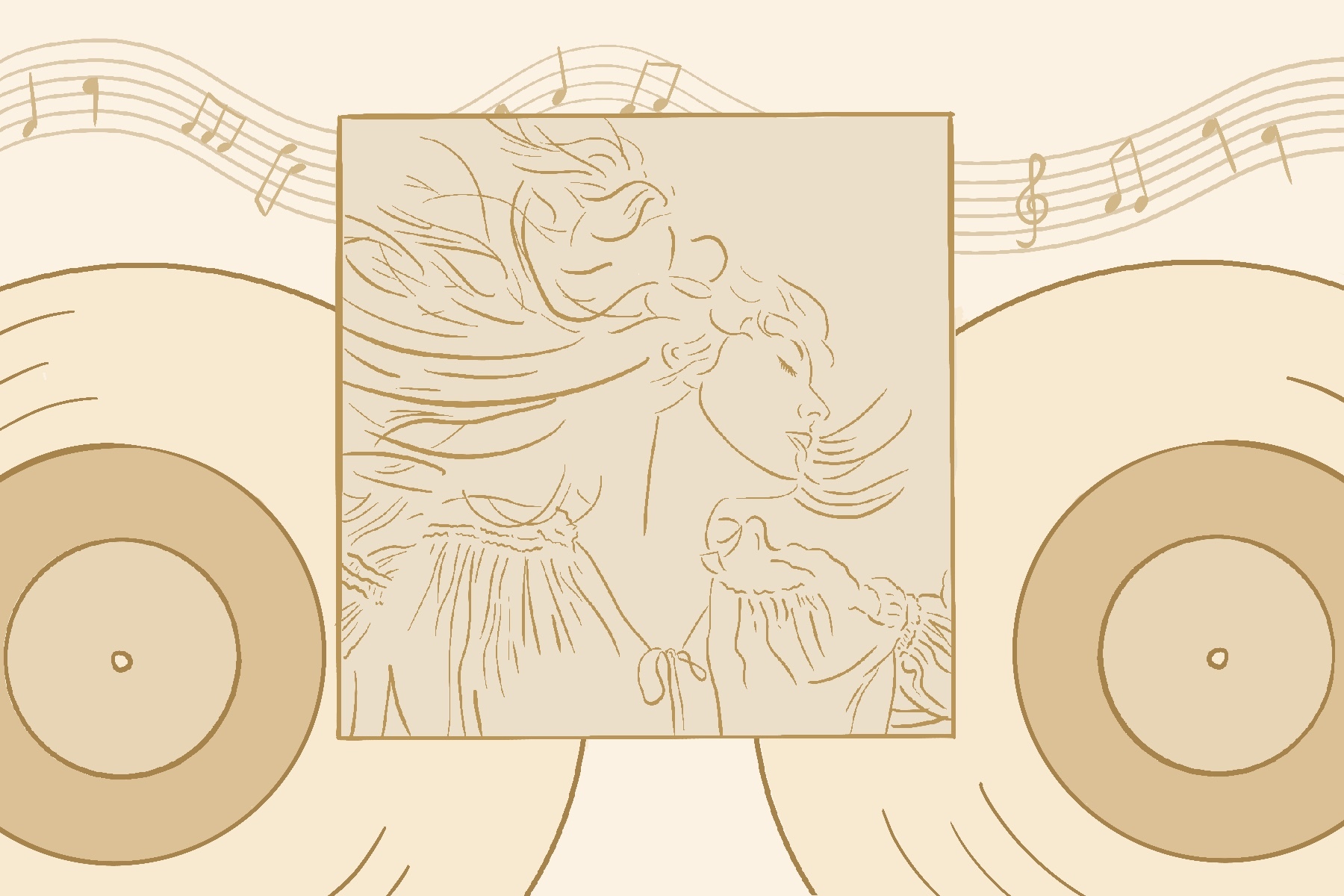Picture this: The year is 2008 and you’re lying in your childhood bed, staring out your window into the rainy night. Taylor Swift’s second album, “Fearless,” is blasting through your headphones. You’re singing along to the lyrics of “You’re Not Sorry,” “Love Story” and “You Belong With Me.” Now, every song on the album has been rereleased on Swift’s newest record, “Fearless (Taylor’s Version).”
On “Fearless (Taylor’s Version),” Swift includes songs from “Fearless” and “Fearless Platinum Edition.” She also includes six songs that she wrote at the time that never made it to the final album. The new songs included on the album are labeled songs “(From the Vault).” On her Twitter, Swift writes why she decided to include the six extra songs in the rerelease:
“I’ve decided I want you to have the whole story, see the entire vivid picture, and let you into the entire dreamscape that is my fearless album. That’s why I’ve chosen to include 6 never before released songs on my version of this album. Written when i was between the ages of 16 and 18, these were the ones it killed me to leave behind.”
It’s evident that Swift truly cares about the music that she creates. Getting to hear songs that she wrote over a decade ago for the first time is a magical feeling, especially for people who have been a fan of hers since the beginning of her musical journey. Like many others, Swift’s music reminds me intensely of some of the best moments of my childhood, so hearing her older songs brings a lot of nostalgia and comfort to me.
The songs “(From the Vault)” also contain enchanting and wistful sentiments. Listening to “Fearless (Taylor’s Version)” feels like stepping into a time machine to revisit the past while also embracing the way that so many things have changed since “Fearless” was first released. For example, listening to the song “Fifteen” at a young age is extremely different than relistening to it when you’ve been a lot older than that for a pretty long time.
While the new album provided Swift a place to release some of her old songs that didn’t get added to the original album release for whatever reason, “Fearless (Taylor’s Version)” was also a way for Swift to reclaim her own art. In November of 2018, Swift switched from working with Big Machine Records to Republic Records and Universal Music Group.
Later in the summer of 2019, a man named Scooter Braun acquired Swift’s previous label, Big Machine Records. Prior to the acquisition, Swift had a feud with Braun. When she found out that Braun had purchased the rights to her first six albums, Swift said, “All I could think about was the incessant, manipulative bullying I’ve received at his hands for years.” In addition to being upset over having someone she disliked hold the rights to her backlog of music, Swift claimed that Braun tried to prohibit her from playing her old songs at the 2019 AMAs.
However, the accuracy of Swift’s claims was disputed by her former record label. They asserted that Swift was spreading false information about the harshness of the restrictions they placed on her using her previous work. Quite a few of the proceedings have been a he-said-she-said situation, so all of the speculating in the world might not be able to fully decipher the entire truth of their interactions.
In this context, completely accurate information on the feud between Swift and Braun also isn’t completely necessary. No matter what, “Fearless (Taylor’s Version)” symbolizes an artist’s ability to reclaim their own work after it has been stolen from them. Fortunately, Swift has a large enough following and has a huge music empire for herself, so her fans have remained loyally at her side through thick and thin.
She has released three more wildly popular albums with her new record label in the last three years. Even if Swift didn’t own her first six albums, it likely wouldn’t impact her life financially; however, a younger, less successful artist might be devastated by having a contract negotiation go so wrong that they didn’t have the ability to own their own musical creations.
So while Swift might not desperately need the rights to her first six albums for her financial security, she wants the rights to them because she wants to own her own art. She had the ability and desire to rerecord “Fearless,” which is arguably one of her most iconic albums, so she could reclaim her work. She has plans to rerecord the other five albums that she released before she switched record labels as well, which is another step in the right direction.
Swift has the power and resources to fight for the rights to her work, and she hopes that her public battle for her music will raise awareness of the problems that affect music artists. In a Tumblr post, which she posted shortly after discovering that Braun had acquired her music, Swift wrote, “I feel very strongly that sharing what is happening to me could change the awareness level for other artists and potentially help them avoid a similar fate. The message being sent to me is very clear. Basically, be a good little girl and shut up. Or you’ll be punished.”
Whether you agree or disagree with Swift, it cannot be denied that “Fearless (Taylor’s Version)” is a powerful move forward. Awareness is being raised for the fact that music artists can lose the rights to their own songs, and Swift’s fans get a heavy dose of nostalgia when they listen to Swift’s mature voice lament about the struggles of being a teenage girl crying in her room about a boy. There isn’t much that could be better than that.

















